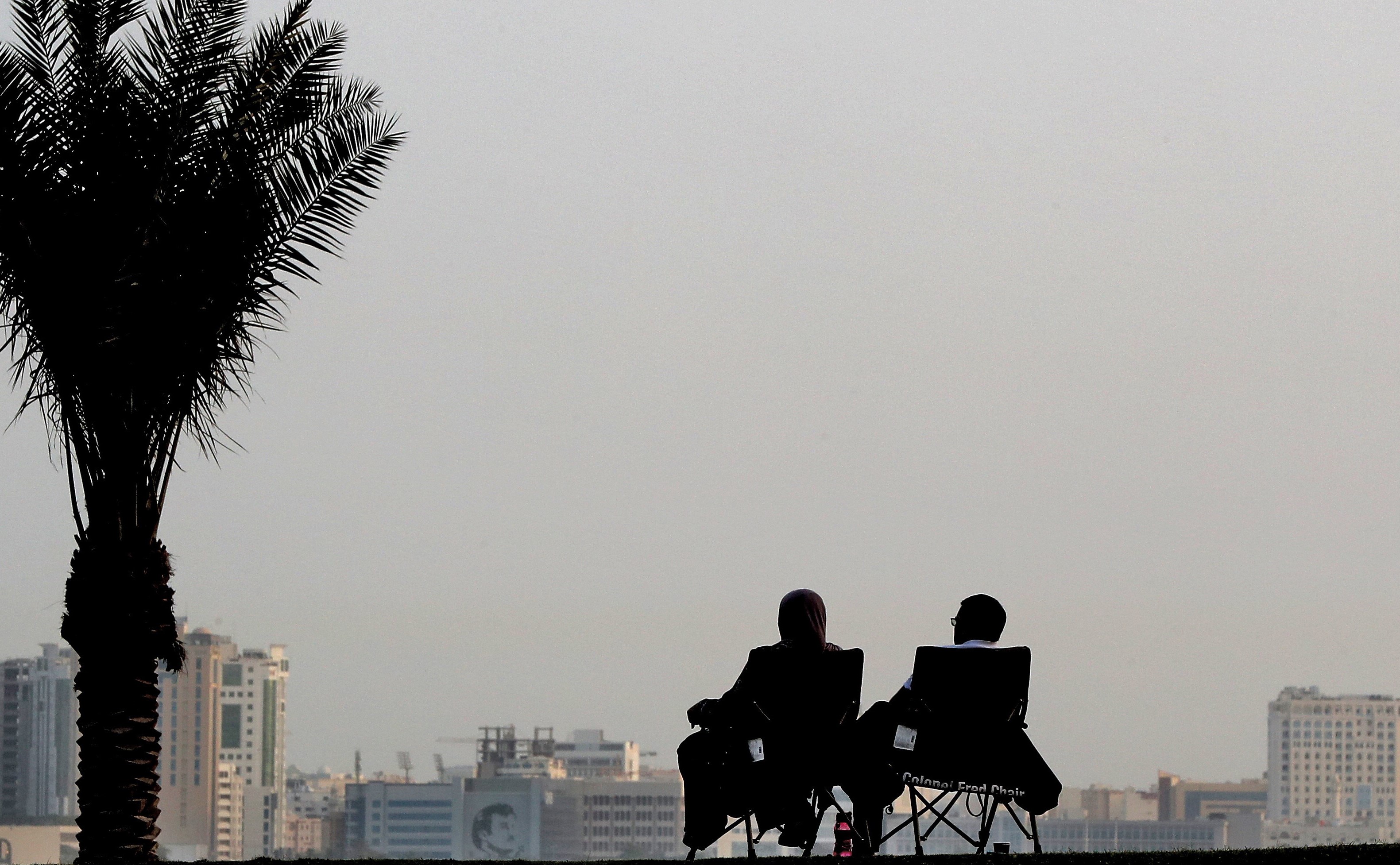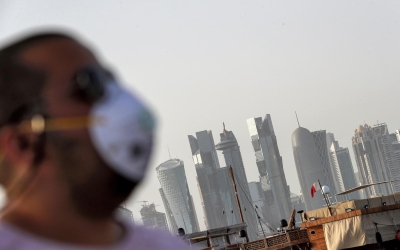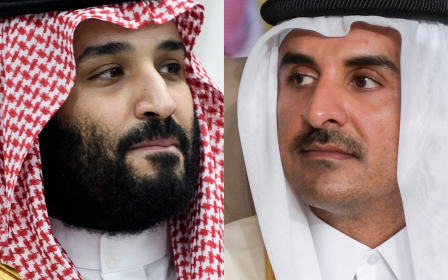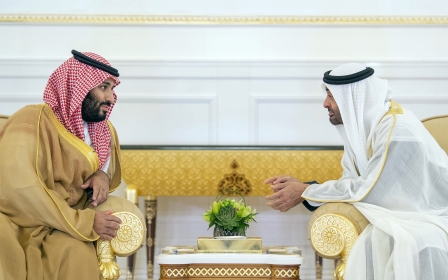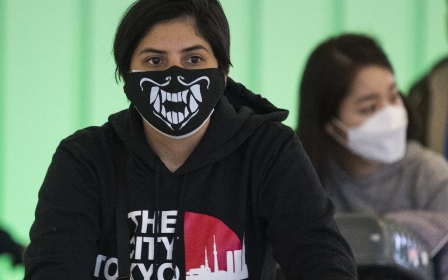Qatar blockade: Saudi-led disinformation war is the tip of the iceberg
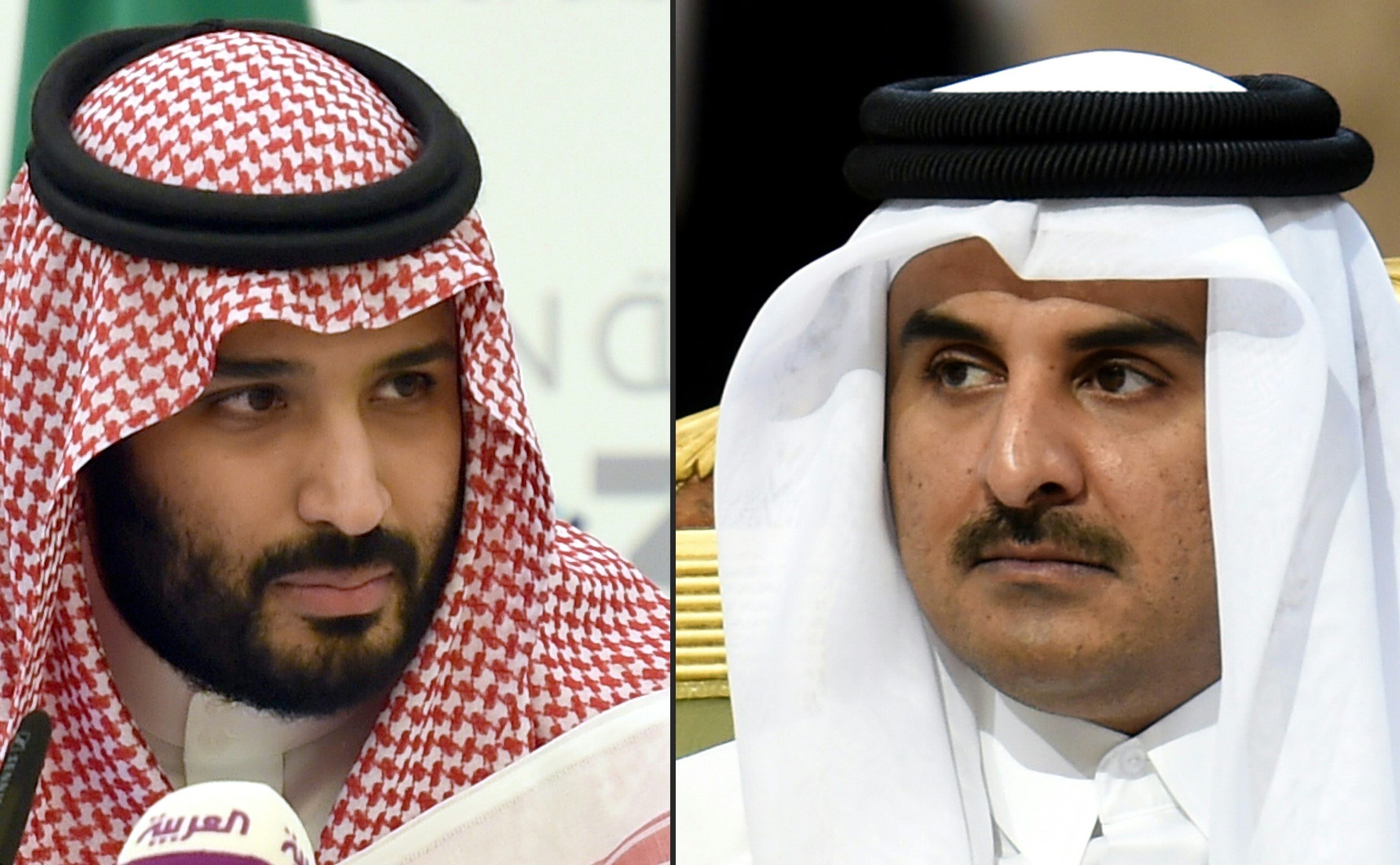
On 5 June 2017, Saudi Arabia, the United Arab Emirates, Bahrain and Egypt imposed a blockade against Qatar, closing land, sea and air borders. The unprecedented aggression tore apart families, violated human rights, and dissolved trust between Qatar and many of its Arab neighbours.
The crisis was a watershed moment in the development of information warfare. The spreading of disinformation and fake news have been foundational in the shift to a post-truth age, where appeals to emotion, and not facts, are the major political currency.
The past three years tell us that the worse is yet to come.
Social media pretexts
Most crises demand a pretext. The US-led Iraq War was sold by fabricating Saddam Hussein's WMD, while the Vietnam War was launched around the Gulf of Tonkin incident which took place in 1964 when North Vietnamese warships purportedly attacked US warships.
New MEE newsletter: Jerusalem Dispatch
Sign up to get the latest insights and analysis on Israel-Palestine, alongside Turkey Unpacked and other MEE newsletters
What set the Qatar crisis apart is that it was one of the first international crises to have been initiated around a pre-orchestrated hack and disinformation campaign
Pretexts are newsworthy events designed to generate public support for what might otherwise be considered unpopular policy decisions, such as a war or blockade. Before 2017, such pretexts had traditionally been launched through legacy media, radio, television and newspapers.
What set the Qatar crisis apart is that it was one of the first international crises to have been initiated around a pre-orchestrated hack and disinformation campaign. Here, the pretext was the hacking of the state’s news agency, an unusual move but one designed to smear Qatar as pro-Iran, a term bound to receive sympathy in Washington under President Donald Trump's administration.
Following the hack, tens of thousands of fake accounts were deployed to amplify anti-Qatar viewpoints and create the illusion that there was a groundswell of popular hostility against Qatar. Between May 2017 and May 2020 these accounts have continued to encourage coup d'etats, manipulate trends, smear Qatar as a belligerent actor in the Middle East, and muddy the waters of truth around the Gulf crisis.
Three years later, to mark the third Ramadan since the blockade, a massive Saudi-led disinformation campaign using sock puppets, trolls, and co-opted influencers spread disinformation about "a coup in Qatar". Even hacked verified accounts of an American singer-songwriter and professional baseball player were used to propagate the disinformation.
From coronavirus to Black Lives Matter
Despite Twitter having knowingly suspended thousands of accounts connected to Saudi, Emirate and Egyptian information operations, the information war does not show signs of abating. On the contrary, Gulf regimes are exploiting multiple global political issues to force home an anti-Qatar, anti-Iranian and anti-Turkish agenda.
Gulf regimes are exploiting multiple global political issues to force home an anti Qatar, Iranian and Turkish agenda
The cumulative impact of all this disinformation is disturbing in its reach. From the English Premier League, to coronavirus, few issues are left untouched.
Those who criticise the pending acquisition of Newcastle United Football Club by Saudi Arabia’s sovereign wealth fund, are deemed "pro-Qatar". Fake accounts posing as British Newcastle United fans have been promoting anti-Qatar content, attempting to frame opposition to the NUFC takeover as merely regional politics, rather than piracy and human rights concerns.
One apparent NUFC fan even denigrated Hatice Cengiz, the grieving fiancee of the murdered Saudi journalist Jamal Khashoggi, accusing her of being part of a petty Qatari attempt to stop the Saudi takeover.
Any sports journalists writing about Emirati-owned Manchester City, such as the Associated Press’s Rob Harris, or the Independent’s Miguel Delaney, find themselves increasingly and regularly smeared as pro-Qatar shills and terrorist sympathisers. Perhaps the most disturbing aspect is that Gulf regimes are exploiting the emotive power of football to attempt to influence British citizens' perception of foreign affairs.
The ongoing coronavirus crisis has even been politicised. Last March, a network of fake accounts accused Qatar of spreading the virus to Argentina, while Saudi-based journalist Noura Al-Moteiri propagated coronavirus conspiracy theories claiming that Qatar had given money to China to help the development of the disease in order to harm the Saudi and Emirati economy.
In the wake of the killing of African-American George Floyd, the self-styled Qatari opposition figure abroad Khalid Al Hail leaked a recording of Qatar’s former Prime Minister, Hamad bin Jassim, referring to former US President Barack Obama as a "slave". This fits in with the blockading narrative that Hamad bin Jassim is the source of much of the region’s evil, but really seeks to exploit the emotions of anti-racists uniting globally under the Black Lives Matter discourse.
Disinformation 4.0
While it used to be the case that digital media amplified legacy news, in the Middle East it is often the case that legacy media is amplifying disinformation occurring on social media. Propaganda ceases to be effective once people know it’s propaganda, but if that propaganda has its nebulous roots in social media, it has a credibility that the state-controlled media lacks because it appears to emerge organically from civil society.
If propaganda has its nebulous roots in social media, it has a credibility that the state- controlled media lacks
Indeed, the organic reach of disinformation ostensibly emerging on social media is being facilitated by once reputable media organisations. The Saudi Research and Marketing Group, an organisation with close ties to the Saudi Crown Prince Mohammed bin Salman, recently reached a deal with the British Independent newspaper to run news sites in Arabic, Persian, Urdu and Turkish with Indy branding.
During the recent "coup in Qatar" disinformation campaign, Indy Arabia ran stories that uncritically embraced the coup disinformation, citing accounts that were later suspended by Twitter.
Tip of the iceberg
But who is ultimately creating these fake organic messages on social media? We do not always know. However, according to The Guardian, some superficially reputable British companies, with luxurious Mayfair offices, are running astroturfing operations and creating fake accounts to burnish the reputation of MBS.
And that is likely the tip of the iceberg.
In the Gulf, the growing power of Mohammed bin Salman, and Abu Dhabi Crown Prince Mohammed bin Zayed, coupled with Trump’s scant regard for truth, global institutions and human rights, have created a febrile environment for disinformation. Integral to this has been the Gulf crisis, against which blockading countries dismiss any criticism directed at them as being the result of a campaign set up by "terrorist-supporting" Qatar.
With high quality deep fakes just around the corner, a growing disinformation industrial complex, and with truth being an undervalued concept by many regimes around the world, the next stage of disinformation warfare is set to be catastrophic.
The views expressed in this article belong to the author and do not necessarily reflect the editorial policy of Middle East Eye.
Middle East Eye delivers independent and unrivalled coverage and analysis of the Middle East, North Africa and beyond. To learn more about republishing this content and the associated fees, please fill out this form. More about MEE can be found here.



